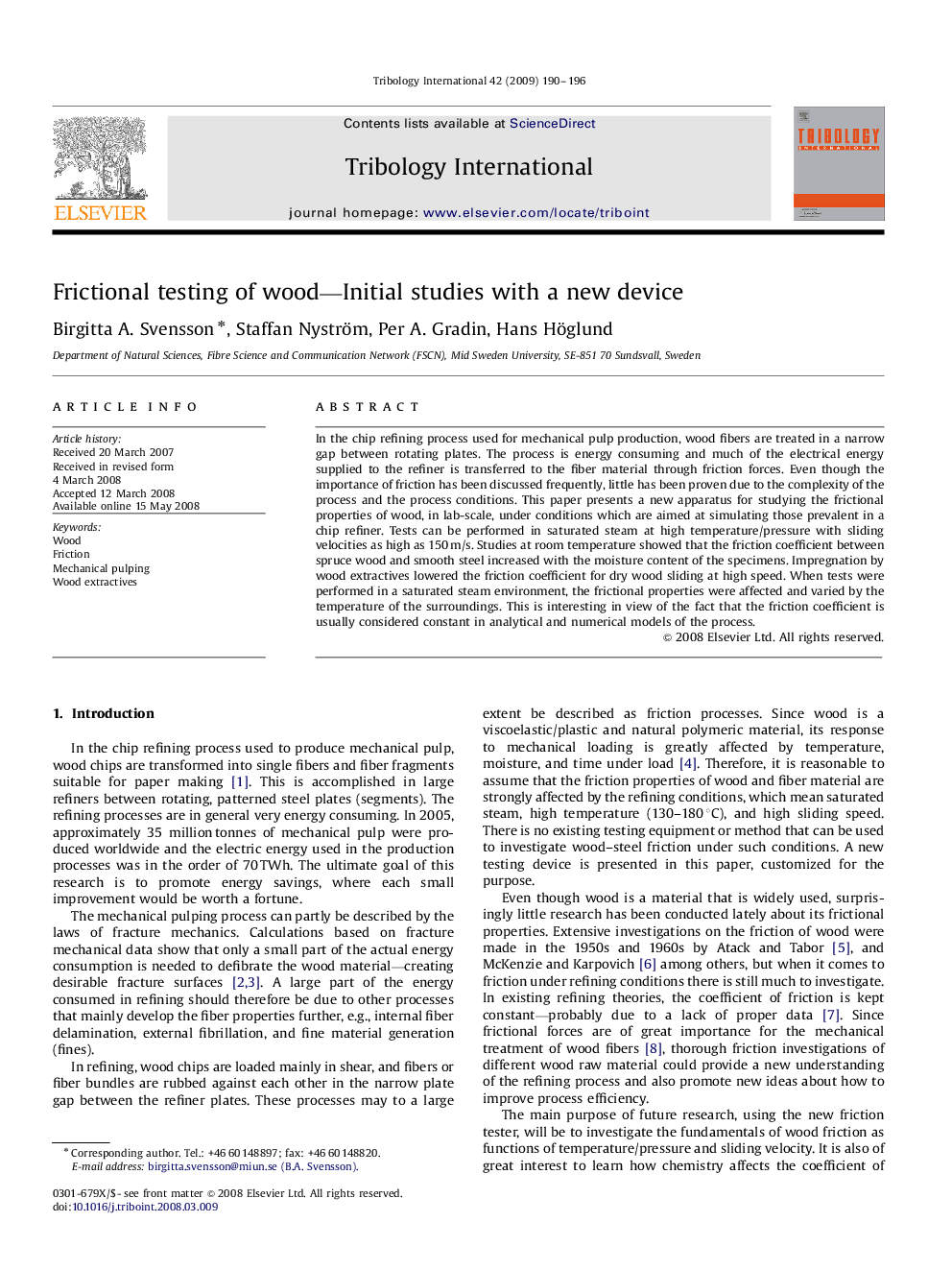| Article ID | Journal | Published Year | Pages | File Type |
|---|---|---|---|---|
| 616317 | Tribology International | 2009 | 7 Pages |
In the chip refining process used for mechanical pulp production, wood fibers are treated in a narrow gap between rotating plates. The process is energy consuming and much of the electrical energy supplied to the refiner is transferred to the fiber material through friction forces. Even though the importance of friction has been discussed frequently, little has been proven due to the complexity of the process and the process conditions. This paper presents a new apparatus for studying the frictional properties of wood, in lab-scale, under conditions which are aimed at simulating those prevalent in a chip refiner. Tests can be performed in saturated steam at high temperature/pressure with sliding velocities as high as 150 m/s. Studies at room temperature showed that the friction coefficient between spruce wood and smooth steel increased with the moisture content of the specimens. Impregnation by wood extractives lowered the friction coefficient for dry wood sliding at high speed. When tests were performed in a saturated steam environment, the frictional properties were affected and varied by the temperature of the surroundings. This is interesting in view of the fact that the friction coefficient is usually considered constant in analytical and numerical models of the process.
